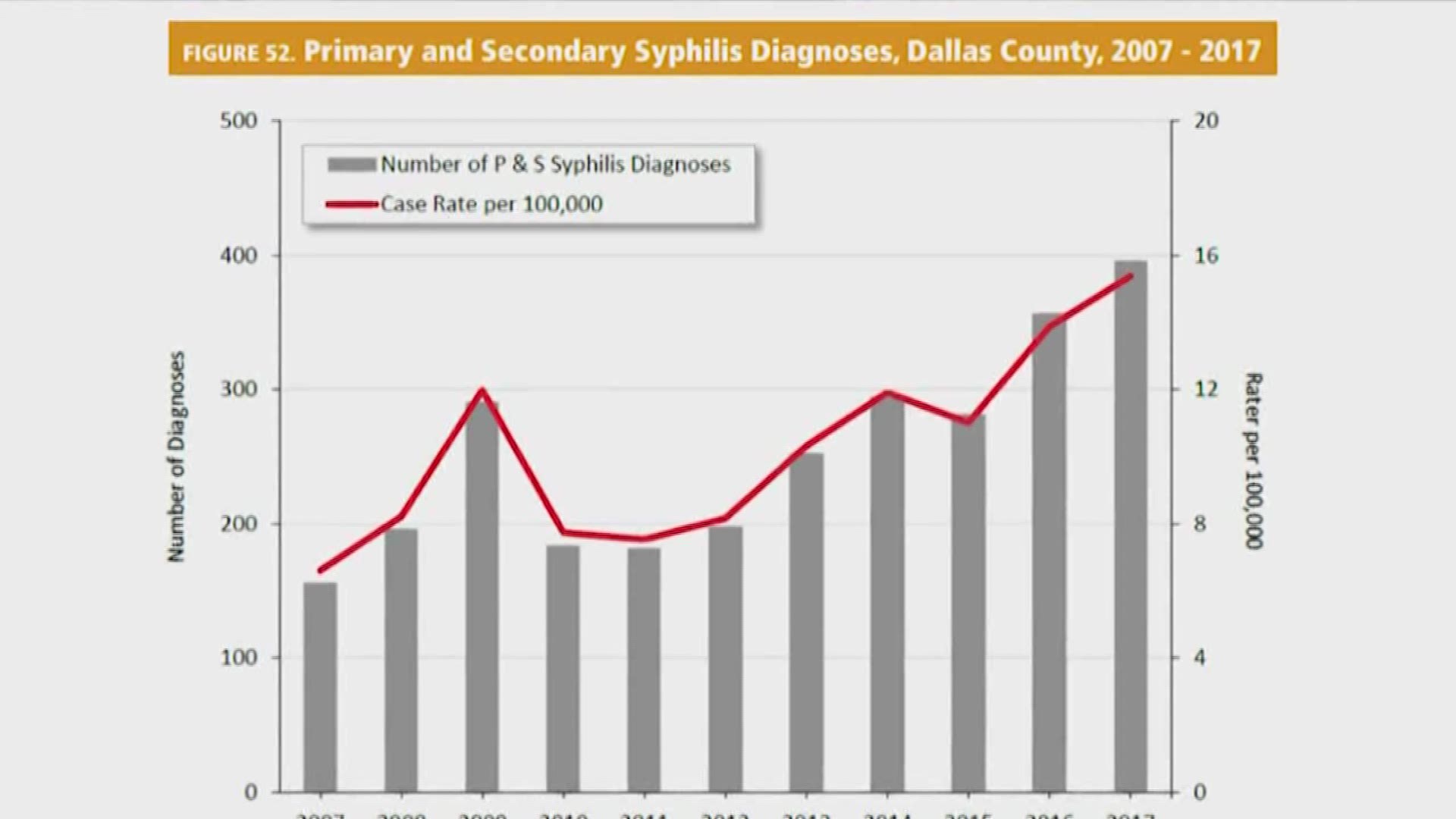DALLAS — Health needs across Dallas County is a hot topic this week.
Dallas County Health and Human Services partnered with the Parkland Health and Hospital System to release the 2019 Community Health Needs Assessment. The 122-page report details some of the major health care challenges and strategies needed to address them.
The report revealed access to health care remains an issue in some Dallas County communities. Some residents complain that transportation, affordability and the availability of resources are realities families face.
The 2019 report also uncovered data showing infectious disease cases are rising across the county. Reported cases of syphilis, chlamydia, gonorrhea and HIV have increased.
Staff at many clinics across Dallas are tackling some of the most serious conditions. Dr. Deborah Miller-Harris is the chief medical officer with Prism Health North Texas. She says access to sexual health resources is a major need.
”We decided to open up an STI or sexual wellness clinic," Miller-Harris said.
However, medical professionals and health care advocates say sexual health risks are not easily and openly discussed in some communities.
During a presentation of the 2019 Community Health Needs Assessment on Thursday, the Dallas County Health Department listed the most common chronic diseases found across the county.
“Heart disease, cancer, stroke, Alzheimer's, diabetes, kidney disease,” said Dr. Philip Huang, director of Dallas County Health and Human Services.
However, the 2019 report shows a handful of ZIP codes are present in virtually every negative indicator. The 75210, 75216, 75217 and 75241 ZIP codes are among those areas.
”These are not just ZIP codes,” said Venton Hill-Jones. “This is Oak Cliff. This is South Dallas.”
Hill-Jones is the chair of Dallas County HIV Task Force and the CEO of Southern Black Policy and Advocacy Network. He says data shows about half the HIV cases in Dallas County are in predominately African-American communities.
”Black communities in Dallas County are having a health crisis right now,” Hill-Jones explained. “We have to respond to that.”
Most of the communities the 2019 assessment reported having the most dramatic impact are across Southern Dallas. Some doctors and health care advocates believe data from the report indicates more inclusive conversations need to happen, in order to effectively tackle all needs.
"Public health cannot be a conversation that’s just left in a silo. We need to be able to expand the conversation," Hill-Jones said.
More on WFAA:
- Tortoise with legendary species-saving libido returns to Galápagos
- Need a date night? A risqué dessert stop with a sense of humor is now open in Plano
- 3 sexually transmitted diseases hit new highs again in US
- Lots of Americans are wrong about how STDs are spread, survey finds
- Many US women say 1st sexual experience was forced as teens

